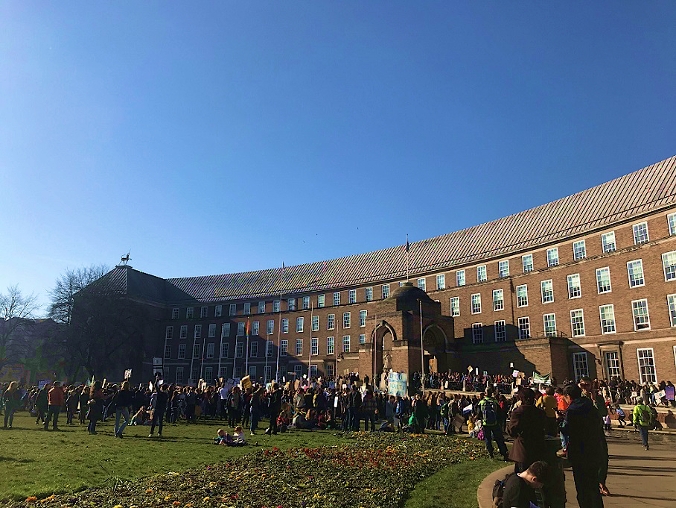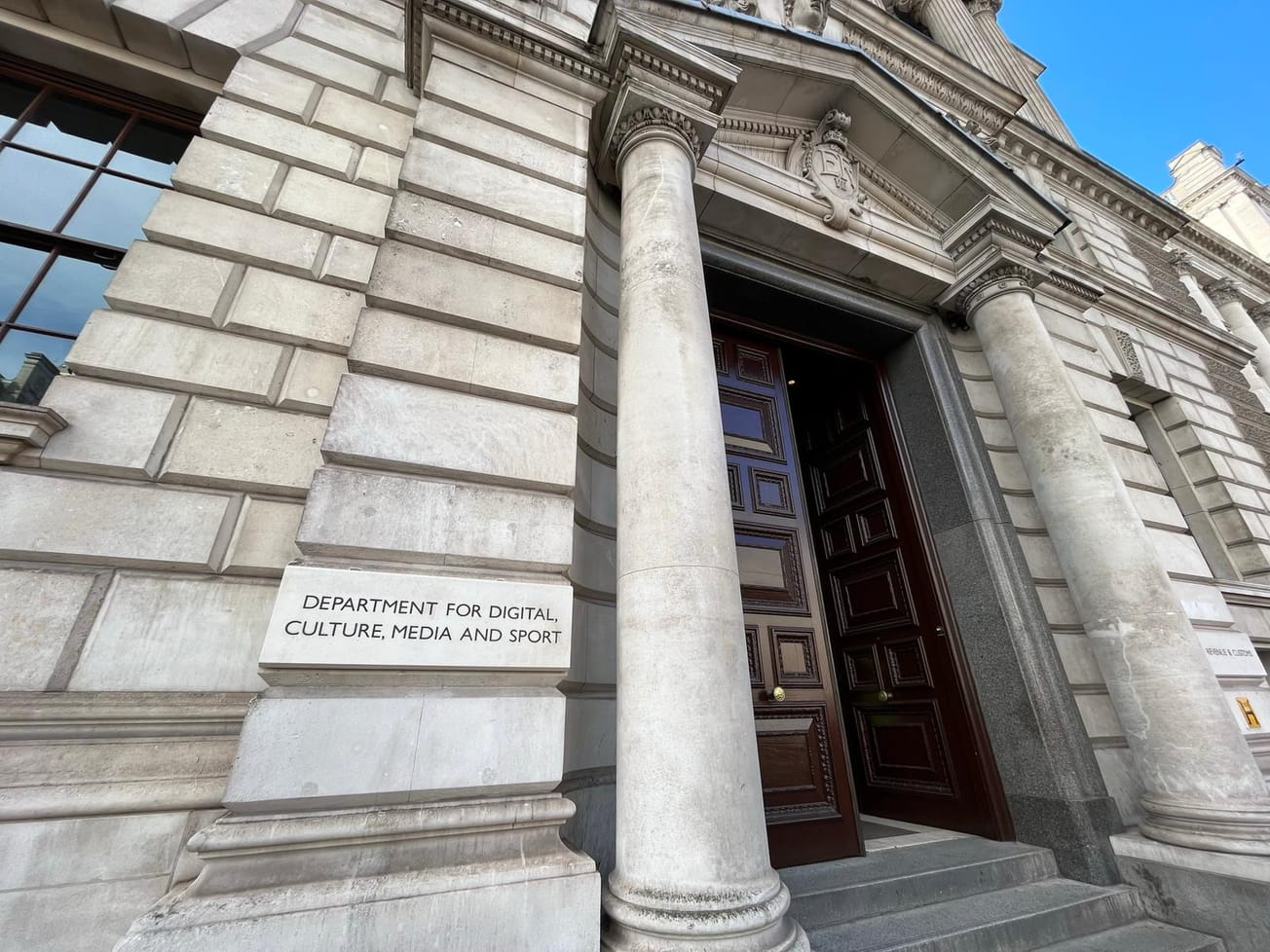By Billy Stockwell, Climate Correspondent
With the news last week that Bristol City Council now opposes the expansion of Bristol Airport, repealing their previous position of support, the airport's future plans have been called into question.
The Council’s U-turn, following a Green Party motion passed on 8 December, comes at a significant time in the world of climate policymaking, with this week marking the fifth anniversary of the signing of the 2015 Paris Agreement.
The Paris Agreement set out a global framework to avoid worst-case climate scenarios, with the goal of limiting global warming to well below 2 degrees Celsius, compared to pre-industrial levels.
With cross-party support, this latest motion is an important development to ensure that Bristol, and the UK, does its fair share to reach these international targets.
Labour, Lib Dem and Green Party councillors were all in agreement that the expansion was ‘incompatible’ with the region’s carbon targets and therefore ‘must not go ahead’.
Good news: @BristolCouncil backed @TheGreenParty motion against #Bristol #AirportExpansion!
— Carla Denyer (@carla_denyer) December 9, 2020
It's taken years but Labour FINALLY u-turned on this critical #ClimateEmergency issue. Now to lobby the Planning Inspectorate to make the right decision...
More: https://t.co/hcelRXSNXA pic.twitter.com/jf5hHncWDk
Speaking to Epigram about the Council’s new position, Green Party Cllr Carla Denyer asserts that the motion was a ‘significant’ step in the right direction.
She says: ‘The proposed expansion would cause over 1 million tonnes more CO2-equivalent emissions to be emitted every year. By comparison, Bristol’s current direct emissions are 1.6 million tonnes, so this is really an enormous decision.’
Many airports up and down the country, including 23 other regional airports, are proposing their own plans for expansion, according to Denyer, which might be influenced by Bristol’s expansion plans.
‘Local Authority planning departments play close attention to key decisions in other parts of the country.
‘We already know that many councillors on planning committees want to turn down applications for climate damaging applications like this one… this appeal will be a test case.’
Cllr Denyer believes that stopping the airport expansion not only has a strong environmental case but will also be good for jobs and Bristol's ‘transition to a net zero carbon economy’.
‘The Green Party’s vision for the UK is a ‘Green New Deal’.
‘This transformation would include support for businesses to decarbonise, provide retraining for workers, and create millions of new green jobs in renewable energy, transport, land management and other sectors.’
Cllr Denyer continued: ‘The next steps are to persuade the region’s Metro Mayor (Conservative Tim Bowles) and lobby the Planning Inspectorate to dismiss the airport’s appeal.’
Stop Bristol Airport Expansion, a local campaign group fighting against the expansion plans, told Epigram that the Planning Inspectorate's decision is ‘very difficult’ to predict.
‘The appeal involves complex local and national planning policies that have historically favoured aviation. These are also governed by international agreements.
‘However, the latest government Aviation policy is now expected in 2021, so the question is the extent to which the planners determine things according to existing policies or whether they take into account that new policies will be designed to transition to an era of fossil free fuel transport.
‘The Airport and its Canadian owners are desperate to get permission to expand before the new environmental legislation is established.
‘They seem simply unable to adjust to a business model suited to the 21st Century.’
Environmental activists and campaign groups have been a very important lobbying tool since the beginning of the year, when the plans for expansion were recommended for approval by a North Somerset Council officer.
In January, Extinction Rebellion and the Bristol Airport Action Network marched through the city centre in opposition to the expansion, and in a major success for anti-expansion activists, North Somerset councillors rejected plans for expansion the following month.
When the airport confirmed they were planning to appeal North Somerset’s decision in August, hundreds of people again took to the streets for a socially-distanced ‘mourning procession’ in Lulsgate Bottom, North Somerset.
Owen Tyley, member of Extinction Rebellion Youth (XRY) in Bristol, told Epigram that if the airport expansion is granted, XRYB will be ‘taking to the site’ to ensure that construction work is ‘impossible’.
‘Extinction Rebellion Youth Bristol absolutely oppose any airport expansion.
‘In an era of climate emergency, it is unthinkable that we would be considering expanding one of the dirtiest and destructive industries.’
The motion passed this week adds to this community effort, calling on Bristol Mayor Marvin Rees to support North Somerset’s decision and lobby the planning inspectorate to follow suit.
However, following the Council’s U-turn earlier this week, Mr Rees has said that stopping the airport’s expansion is ‘hugely symbolic’, but perhaps not the best solution.
Rather, ‘we need to be clear that our aim in tackling aviation-driven climate change is to reduce flights and air miles’, he says.
‘Aeroplanes won’t take off if people aren’t on them, so that means reducing demand.
‘My emphasis is simply about let’s go for the demand through prices. That’s the effective way.’
He did, however, confirm he will support any counsellor who wishes to express their opposition to the expansion to the planning inspectorate.
In response to Mr Rees’ comments, Stop Bristol Airport Expansion told Epigram that the Mayor has for years ‘blindly accepted the Airport’s assertions about the benefits of growth’.
‘Reduction in demand is very much part of the mix that's needed, although ‘demand reduction’ is just one one tool available.
‘Airport expansion should wait until the airline industry has decarbonised and public transport links to the Airport are far stronger.’
New report says significant reduction of emissions needed for Bristol to meet 2030 carbon targets
Opinion | The University should actively encourage climate strikers in order to keep its word
A spokesperson for Bristol Airport responded to the Council’s U-turn, stating: ‘The plans to expand capacity at the airport will offer passengers more routes and flights from the South West directly, create jobs, facilitate inward investment and inbound tourism, and support sustainable economic growth that will drive the region’s recovery from Covid-19.
‘Not expanding Bristol Airport risks putting the brakes on the region’s economy and shutting the door to international trade and tourism at a time when the UK in a post-Brexit world needs to show it is open for business.
‘Preventing Bristol Airport from meeting demand for air travel from within the region it serves will simply exacerbate a situation which already sees millions of passengers a year from our region drive to London airports in order to fly, creating unnecessary carbon emissions and congestion in the process.’
Members of the public who wish to express their opinions on the matter can do so up until 6 January, by taking part in the public consultation being held by North Somerset Council.
This consultation will culminate in a four-week public inquiry with the Government’s Planning Inspectorate commencing on Tuesday 20 July.
Featured Image: Epigram / Maggie Sawant
Do you agree with Bristol City Council's decision to oppose plans for airport expansion?








